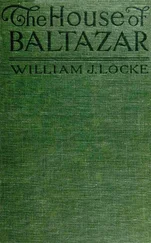William Locke - The Rough Road
Здесь есть возможность читать онлайн «William Locke - The Rough Road» — ознакомительный отрывок электронной книги совершенно бесплатно, а после прочтения отрывка купить полную версию. В некоторых случаях можно слушать аудио, скачать через торрент в формате fb2 и присутствует краткое содержание. Жанр: foreign_prose, на английском языке. Описание произведения, (предисловие) а так же отзывы посетителей доступны на портале библиотеки ЛибКат.
- Название:The Rough Road
- Автор:
- Жанр:
- Год:неизвестен
- ISBN:нет данных
- Рейтинг книги:4 / 5. Голосов: 1
-
Избранное:Добавить в избранное
- Отзывы:
-
Ваша оценка:
- 80
- 1
- 2
- 3
- 4
- 5
The Rough Road: краткое содержание, описание и аннотация
Предлагаем к чтению аннотацию, описание, краткое содержание или предисловие (зависит от того, что написал сам автор книги «The Rough Road»). Если вы не нашли необходимую информацию о книге — напишите в комментариях, мы постараемся отыскать её.
The Rough Road — читать онлайн ознакомительный отрывок
Ниже представлен текст книги, разбитый по страницам. Система сохранения места последней прочитанной страницы, позволяет с удобством читать онлайн бесплатно книгу «The Rough Road», без необходимости каждый раз заново искать на чём Вы остановились. Поставьте закладку, и сможете в любой момент перейти на страницу, на которой закончили чтение.
Интервал:
Закладка:
The Dean had already posted his letter to his old friend General Gadsby at the War Office.
So the die was cast. The Rubicon was crossed. The bridges were burnt. The irrevocable step was taken. Dr. Murdoch turned up the next morning with his prescription for physical training. And then Doggie trained assiduously, monotonously, wearily. He grew appalled by the senselessness of this apparently unnecessary exertion. Now and then Peggy accompanied him on his prescribed walks; but the charm of her company was discounted by the glaring superiority of her powers of endurance. While he ached with fatigue, she pressed along as fresh as Atalanta at the beginning of her race. When they parted by the Deanery door, she would stand flushed, radiant in her youth and health, and say:
“We’ve had a topping walk, old dear. Now isn’t it a glorious thing to feel oneself alive?”
But poor Doggie of the flabby muscles felt half dead.
The fateful letter burdening Doggie with the King’s commission arrived a few weeks later: a second lieutenancy in a Fusilier battalion of the New Army. Dates and instructions were given. The impress of the Royal Arms at the head of the paper, with its grotesque perky lion and unicorn, conveyed to Doggie a sense of the grip of some uncanny power. The typewritten words scarcely mattered. The impress fascinated him. There was no getting away from it. Those two pawing beasts held him in their clutch. They headed a Death Warrant, from which there was no appeal.
Doggie put his house in order, dismissed with bounty those of his servants who would be no longer needed, and kept the Peddles, husband and wife, to look after his interests. On his last night at home he went wistfully through the familiar place, the drawing-room sacred to his mother’s memory, the dining-room so solid in its half-century of comfort, his own peacock and ivory room so intensely himself, so expressive of his every taste, every mood, every emotion. Those strange old-world musical instruments – he could play them all with the touch or breath of a master and a lover. The old Italian theorbo. He took it up. How few to-day knew its melodious secret! He looked around. All these daintinesses and prettinesses had a meaning. They signified the magical little beauties of life – things which asserted a range of spiritual truths, none the less real and consolatory because vice and crime and ugliness and misery and war co-existed in ghastly fact on other facets of the planet Earth. The sweetness here expressed was as essential to the world’s spiritual life as the sweet elements of foodstuffs to its physical life. To the getting together of all these articles of beauty he had devoted the years of his youth… And – another point of view – was he not the guardian by inheritance – in other words, by Divine Providence – of this beautiful English home, the trustee of English comfort, of the sacred traditions of sweet English life that had made England the only country, the only country, he thought, that could call itself a Country and not a Compromise, in the world?
And he was going to leave it all. All that it meant in beauty and dignity and ease of life. For what?
For horror and filthiness and ugliness, for everything against which his beautiful peacock and ivory room protested. Doggie’s last night at Denby Hall was a troubled one.
Aunt Sophia and Peggy accompanied him to London and stayed with him at his stuffy little hotel off Bond Street, while Doggie got his kit together. They bought everything in every West End shop that any salesman assured them was essential for active service. Swords, revolvers, field-glasses, pocket-knives (for gigantic pockets), compasses, mess-tins, cooking-batteries, sleeping-bags, waterproofs, boots innumerable, toilet accessories, drinking-cups, thermos flasks, field stationery cases, periscopes, tinted glasses, Gieve waistcoats, cholera belts, portable medicine cases, earplugs, tin-openers, corkscrews, notebooks, pencils, luminous watches, electric torches, pins, housewives, patent seat walking-sticks – everything that the man of commercial instincts had devised for the prosecution of the war.
The amount of warlike equipment with which Doggie, with the aid of his Aunt Sophia and Peggy, encumbered the narrow little passages of Sturrocks’s Hotel, must have weighed about a ton.
At last Doggie’s uniforms – several suits – came home. He had devoted enormous care to their fit. Attired in one he looked beautiful. Peggy decreed a dinner at the Carlton. She and Doggie alone. Her mother could get some stuffy old relation to spend the evening with her at Sturrocks’s. She wanted Doggie all to herself, so as to realize the dream of many disgusting and humiliating months. And as she swept through the palm court and up the broad stairs and wound through the crowded tables of the restaurant with the khaki-clad Doggie by her side, she felt proud and uplifted. Here was her soldier whom she had made. Her very own man in khaki.
“Dear old thing,” she whispered, pressing his arm as they trekked to their table. “Don’t you feel glorious? Don’t you feel as if you could face the universe?”
Peggy drank one glass of the quart of champagne. Doggie drank the rest.
On getting into bed he wondered why this unprecedented quantity of wine had not affected his sobriety. Its only effect had been to stifle thought. He went to bed and slept happily, for Peggy’s parting kiss had been such as would conduce to any young man’s felicity.
The next morning Aunt Sophia and Peggy saw him off to his depot, with his ton of luggage. He leaned out of the carriage window and exchanged hand kisses with Peggy until the curve of the line cut her off. Then he settled down in his corner with the Morning Post . But he could not concentrate his attention on the morning news. This strange costume in which he was clothed seemed unreal, monstrous; no longer the natty dress in which he had been proud to prink the night before, but a nightmare, Nessus-like investiture, signifying some abominable burning doom.
The train swept him into a world that was upside down.
CHAPTER VII
Those were proud days for Peggy. She went about Durdlebury with her head in the air, and her step was as martial as though she herself wore the King’s uniform, and she regarded the other girls of the town with a defiant eye. If only she could discover, she thought, the sender of the abominable feather! In Timpany’s drapery establishment she raked the girls at the counter with a searching glance. At the cathedral services she studied the demure faces of her contemporaries. Now that Doggie was a soldier she held the anonymous exploit to be cowardly and brutal. What did people know of the thousand and one reasons that kept eligible young men out of the Army? What had they known of Marmaduke? As soon as the illusion of his life had been dispelled, he had marched away with as gallant a tread as anybody; and though Doggie had kept to himself his shrinkings and his terrors, she knew that what to the average hardily bred young man was a gay adventure, was to him an ordeal of considerable difficulty. She longed for his first leave, so that she could parade him before the town, in the event of there being a lurking sceptic who still refused to believe that he had joined the Army.
Conspicuous in the drawing-room, framed in silver, stood a large full-length photograph of Doggie in his new uniform.
She wrote to him daily, chronicling the little doings of the town, at times reviling it for its dullness. Dad, on numberless committees, was scarcely ever in the house, except for hurried meals. Most of the pleasant young clergy had gone. Many of the girls had gone too: Dorothy Bruce to be a probationer in a V.A.D. hospital. If Durdlebury were not such a rotten out-of-the-world place, the infirmary would be full of wounded soldiers, and she could do her turn at nursing. As things were, she could only knit socks for Tommies and a silk khaki tie for her own boy. But when everybody was doing their bit, these occupations were not enough to prevent her feeling a little slacker. He would have to do the patriotic work for both of them, tell her all about himself, and let her share everything with him in imagination. She also expressed her affection for him in shy and slangy terms.
Читать дальшеИнтервал:
Закладка:
Похожие книги на «The Rough Road»
Представляем Вашему вниманию похожие книги на «The Rough Road» списком для выбора. Мы отобрали схожую по названию и смыслу литературу в надежде предоставить читателям больше вариантов отыскать новые, интересные, ещё непрочитанные произведения.
Обсуждение, отзывы о книге «The Rough Road» и просто собственные мнения читателей. Оставьте ваши комментарии, напишите, что Вы думаете о произведении, его смысле или главных героях. Укажите что конкретно понравилось, а что нет, и почему Вы так считаете.












